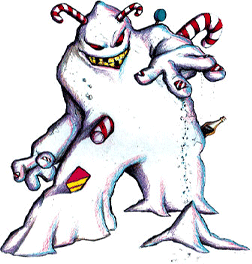Sugar is the devil!
Replies
-
Google...where all the best research is done!0
-
IN.
 0
0 -
trityl chloride, acetic anhydride, hydrogen chlorine, thionyl chloride, and methanol in the presence of dimethylformamide, 4-methylmorpholine, toluene, methyl isobutyl ketone, acetic acid, benzyltriethlyammonium chloride, and sodium methoxide,
I'm going to go out on a limb and guess that you have no clue what any of these are.
Also: hydrogen chlorine? Nope.
Haha haha.
Everyone should science. It would make the world a better place.0 -
The point of my question has nothing to do with proving Splenda causes cancer but, bc people are commenting about it here are some fun facts:
Sucralose: What are the cons?
The most misunderstood fact about sucralose is that it is nothing like sugar even though the marketing implies that it is. Sucralose was actually discovered while trying to create a new insecticide. It may have started out as sugar, but the final product is anything but sugar. According to the book Sweet Deception, sucralose is made when sugar is treated with trityl chloride, acetic anhydride, hydrogen chlorine, thionyl chloride, and methanol in the presence of dimethylformamide, 4-methylmorpholine, toluene, methyl isobutyl ketone, acetic acid, benzyltriethlyammonium chloride, and sodium methoxide, making it unlike anything found in nature. If you read the fine print on the Splenda web site, it states that "although sucralose has a structure like sugar and a sugar-like taste, it is not natural." The presence of chlorine is thought to be the most dangerous component of sucralose. Chlorine is considered a carcinogen and has been used in poisonous gas, disinfectants, pesticides, and plastics. The digestion and absorption of sucralose is not clear due to a lack of long-term studies on humans. The majority of studies were done on animals for short lengths of time. The alleged symptoms associated with sucralose are gastrointestinal problems (bloating, gas, diarrhea, nausea), skin irritations (rash, hives, redness, itching, swelling), wheezing, cough, runny nose, chest pains, palpitations, anxiety, anger, moods swings, depression, and itchy eyes. The only way to be sure of the safety of sucralose is to have long-term studies on humans done.
Ok, no more posts from me on that subject. I don't want to debate about it lol!
OMG! Please, take a chemistry class.0 -
This should make up for the "bad foods" thread which I see was sadly deleted
 0
0 -
tincanonastring wrote: »Google...where all the best research is done!
Gone are the days of needing to have that encyclopedia handy. Though I still do.
0 -
kamakazeekim wrote: »Are you diabetic? Or is it that you just find yourself binging on sugar laden foods? Moderation is key...no reason to cut out a whole food group.
Your body cannot tell the difference between different kinds of sugar but I'd still recommend eating a piece of fruit when a sugar craving hits...it's sweet and provides other nutrients not found in typical "junk" food.
I just crave sugar...A LOT! Lol. I don't plan on cutting it out altogether, I just want to stop craving candy lol
You crave candy for the same reason we all do.. It tastes really good. I don't know what you can do about that aside from keeping it out of the house, like many others have suggested.
0 -
kamakazeekim wrote: »Are you diabetic? Or is it that you just find yourself binging on sugar laden foods? Moderation is key...no reason to cut out a whole food group.
Your body cannot tell the difference between different kinds of sugar but I'd still recommend eating a piece of fruit when a sugar craving hits...it's sweet and provides other nutrients not found in typical "junk" food.
I just crave sugar...A LOT! Lol. I don't plan on cutting it out altogether, I just want to stop craving candy lol
exert more self control ...
OR
totally remove it from your environment.
OR
totally remove it from your environment and then slowly re-introduce it
0 -
If sugar is the devil then I guess I'm working for the devil. I work in a bakery.
In seriousness, if you crave sugar maybe you should...have sugar? I don't think deprivation is a good thing and it may set you up for future failure. I think the intense cravings you're describing will stop when you allow yourself sugar each day in normal quantities because then you won't be deprived.0 -
-
MrCoolGrim wrote: »
You are like a GifMaster now. The Force is strong with you, for pulling out that MIB one...
0 -
The point of my question has nothing to do with proving Splenda causes cancer but, bc people are commenting about it here are some fun facts:
Sucralose: What are the cons?
The most misunderstood fact about sucralose is that it is nothing like sugar even though the marketing implies that it is. Sucralose was actually discovered while trying to create a new insecticide. It may have started out as sugar, but the final product is anything but sugar. According to the book Sweet Deception, sucralose is made when sugar is treated with trityl chloride, acetic anhydride, hydrogen chlorine, thionyl chloride, and methanol in the presence of dimethylformamide, 4-methylmorpholine, toluene, methyl isobutyl ketone, acetic acid, benzyltriethlyammonium chloride, and sodium methoxide, making it unlike anything found in nature. If you read the fine print on the Splenda web site, it states that "although sucralose has a structure like sugar and a sugar-like taste, it is not natural." The presence of chlorine is thought to be the most dangerous component of sucralose. Chlorine is considered a carcinogen and has been used in poisonous gas, disinfectants, pesticides, and plastics. The digestion and absorption of sucralose is not clear due to a lack of long-term studies on humans. The majority of studies were done on animals for short lengths of time. The alleged symptoms associated with sucralose are gastrointestinal problems (bloating, gas, diarrhea, nausea), skin irritations (rash, hives, redness, itching, swelling), wheezing, cough, runny nose, chest pains, palpitations, anxiety, anger, moods swings, depression, and itchy eyes. The only way to be sure of the safety of sucralose is to have long-term studies on humans done.
Ok, no more posts from me on that subject. I don't want to debate about it lol!
Oh, *kitten*! My sides!
1) OP posts that artificial sweeteners cause cancer.
2) Hilarity ensues.
3) OP doubles down with ctrl+v from the internets.
4) Enterprising individuals find original article.
5) Amazingly bearded individual notices the paragraph immediately preceding the piece that OP copied.
"The FDA reviewed studies in human beings and animals and determined that sucralose did not pose carcinogenic, reproductive, or neurological risk to human beings." 0
0 -
I believe it's copypasta from here: http://www.medicinenet.com/artificial_sweeteners/page9.htmThe point of my question has nothing to do with proving Splenda causes cancer but, bc people are commenting about it here are some fun facts:
Sucralose: What are the cons?
The most misunderstood fact about sucralose is that it is nothing like sugar even though the marketing implies that it is. Sucralose was actually discovered while trying to create a new insecticide. It may have started out as sugar, but the final product is anything but sugar. According to the book Sweet Deception, sucralose is made when sugar is treated with trityl chloride, acetic anhydride, hydrogen chlorine, thionyl chloride, and methanol in the presence of dimethylformamide, 4-methylmorpholine, toluene, methyl isobutyl ketone, acetic acid, benzyltriethlyammonium chloride, and sodium methoxide, making it unlike anything found in nature. If you read the fine print on the Splenda web site, it states that "although sucralose has a structure like sugar and a sugar-like taste, it is not natural." The presence of chlorine is thought to be the most dangerous component of sucralose. Chlorine is considered a carcinogen and has been used in poisonous gas, disinfectants, pesticides, and plastics. The digestion and absorption of sucralose is not clear due to a lack of long-term studies on humans. The majority of studies were done on animals for short lengths of time. The alleged symptoms associated with sucralose are gastrointestinal problems (bloating, gas, diarrhea, nausea), skin irritations (rash, hives, redness, itching, swelling), wheezing, cough, runny nose, chest pains, palpitations, anxiety, anger, moods swings, depression, and itchy eyes. The only way to be sure of the safety of sucralose is to have long-term studies on humans done.
Ok, no more posts from me on that subject. I don't want to debate about it lol!
I'm curious, what is the source for this info? I'd like to go read, but you did not list any links.
ETA: Sniped because I didn't read the whole thread first. I R bad MFPer.

0 -
LucasEVille wrote: »
And so the unnecessary flagging begins.... And I'm with the poster above. If someone has a peer reviewed study that's not done on rats...I'd be willing to read it while I'm on my lunch break.Of all the gifs in this thread, how is this what gets flagged?!
The irony being that 99% of my posts are usually GIFs, I was in a rare good mood when I posted the above 0
0 -
tincanonastring wrote: »The point of my question has nothing to do with proving Splenda causes cancer but, bc people are commenting about it here are some fun facts:
Sucralose: What are the cons?
The most misunderstood fact about sucralose is that it is nothing like sugar even though the marketing implies that it is. Sucralose was actually discovered while trying to create a new insecticide. It may have started out as sugar, but the final product is anything but sugar. According to the book Sweet Deception, sucralose is made when sugar is treated with trityl chloride, acetic anhydride, hydrogen chlorine, thionyl chloride, and methanol in the presence of dimethylformamide, 4-methylmorpholine, toluene, methyl isobutyl ketone, acetic acid, benzyltriethlyammonium chloride, and sodium methoxide, making it unlike anything found in nature. If you read the fine print on the Splenda web site, it states that "although sucralose has a structure like sugar and a sugar-like taste, it is not natural." The presence of chlorine is thought to be the most dangerous component of sucralose. Chlorine is considered a carcinogen and has been used in poisonous gas, disinfectants, pesticides, and plastics. The digestion and absorption of sucralose is not clear due to a lack of long-term studies on humans. The majority of studies were done on animals for short lengths of time. The alleged symptoms associated with sucralose are gastrointestinal problems (bloating, gas, diarrhea, nausea), skin irritations (rash, hives, redness, itching, swelling), wheezing, cough, runny nose, chest pains, palpitations, anxiety, anger, moods swings, depression, and itchy eyes. The only way to be sure of the safety of sucralose is to have long-term studies on humans done.
Ok, no more posts from me on that subject. I don't want to debate about it lol!
Oh, *kitten*! My sides!
1) OP posts that artificial sweeteners cause cancer.
2) Hilarity ensues.
3) OP doubles down with ctrl+v from the internets.
4) Enterprising individuals find original article.
5) Amazingly bearded individual notices the paragraph immediately preceding the piece that OP copied.
"The FDA reviewed studies in human beings and animals and determined that sucralose did not pose carcinogenic, reproductive, or neurological risk to human beings."
Nice! Yellow peeps for you!0 -
tincanonastring wrote: »The point of my question has nothing to do with proving Splenda causes cancer but, bc people are commenting about it here are some fun facts:
Sucralose: What are the cons?
The most misunderstood fact about sucralose is that it is nothing like sugar even though the marketing implies that it is. Sucralose was actually discovered while trying to create a new insecticide. It may have started out as sugar, but the final product is anything but sugar. According to the book Sweet Deception, sucralose is made when sugar is treated with trityl chloride, acetic anhydride, hydrogen chlorine, thionyl chloride, and methanol in the presence of dimethylformamide, 4-methylmorpholine, toluene, methyl isobutyl ketone, acetic acid, benzyltriethlyammonium chloride, and sodium methoxide, making it unlike anything found in nature. If you read the fine print on the Splenda web site, it states that "although sucralose has a structure like sugar and a sugar-like taste, it is not natural." The presence of chlorine is thought to be the most dangerous component of sucralose. Chlorine is considered a carcinogen and has been used in poisonous gas, disinfectants, pesticides, and plastics. The digestion and absorption of sucralose is not clear due to a lack of long-term studies on humans. The majority of studies were done on animals for short lengths of time. The alleged symptoms associated with sucralose are gastrointestinal problems (bloating, gas, diarrhea, nausea), skin irritations (rash, hives, redness, itching, swelling), wheezing, cough, runny nose, chest pains, palpitations, anxiety, anger, moods swings, depression, and itchy eyes. The only way to be sure of the safety of sucralose is to have long-term studies on humans done.
Ok, no more posts from me on that subject. I don't want to debate about it lol!
Oh, *kitten*! My sides!
1) OP posts that artificial sweeteners cause cancer.
2) Hilarity ensues.
3) OP doubles down with ctrl+v from the internets.
4) Enterprising individuals find original article.
5) Amazingly bearded individual notices the paragraph immediately preceding the piece that OP copied.
"The FDA reviewed studies in human beings and animals and determined that sucralose did not pose carcinogenic, reproductive, or neurological risk to human beings."
You forgot what's about to happen.
6) White Knights appear with strawman argument telling everyone to just leave OP alone, if she wants to eliminate sugar it is her choice.
7) OP starts mean people thread.
0 -
tincanonastring wrote: »The point of my question has nothing to do with proving Splenda causes cancer but, bc people are commenting about it here are some fun facts:
Sucralose: What are the cons?
The most misunderstood fact about sucralose is that it is nothing like sugar even though the marketing implies that it is. Sucralose was actually discovered while trying to create a new insecticide. It may have started out as sugar, but the final product is anything but sugar. According to the book Sweet Deception, sucralose is made when sugar is treated with trityl chloride, acetic anhydride, hydrogen chlorine, thionyl chloride, and methanol in the presence of dimethylformamide, 4-methylmorpholine, toluene, methyl isobutyl ketone, acetic acid, benzyltriethlyammonium chloride, and sodium methoxide, making it unlike anything found in nature. If you read the fine print on the Splenda web site, it states that "although sucralose has a structure like sugar and a sugar-like taste, it is not natural." The presence of chlorine is thought to be the most dangerous component of sucralose. Chlorine is considered a carcinogen and has been used in poisonous gas, disinfectants, pesticides, and plastics. The digestion and absorption of sucralose is not clear due to a lack of long-term studies on humans. The majority of studies were done on animals for short lengths of time. The alleged symptoms associated with sucralose are gastrointestinal problems (bloating, gas, diarrhea, nausea), skin irritations (rash, hives, redness, itching, swelling), wheezing, cough, runny nose, chest pains, palpitations, anxiety, anger, moods swings, depression, and itchy eyes. The only way to be sure of the safety of sucralose is to have long-term studies on humans done.
Ok, no more posts from me on that subject. I don't want to debate about it lol!
Oh, *kitten*! My sides!
1) OP posts that artificial sweeteners cause cancer.
2) Hilarity ensues.
3) OP doubles down with ctrl+v from the internets.
4) Enterprising individuals find original article.
5) Amazingly bearded individual notices the paragraph immediately preceding the piece that OP copied.
"The FDA reviewed studies in human beings and animals and determined that sucralose did not pose carcinogenic, reproductive, or neurological risk to human beings."
I am not amazingly bearded. I have a beard, but it ain't amazing.
Heck, you even quoted my post that had that in it.
Whatchu playin' at, bro?0 -
6) Public lauds Tincanon for his diligence and for his awesome beard.0
-
tincanonastring wrote: »The point of my question has nothing to do with proving Splenda causes cancer but, bc people are commenting about it here are some fun facts:
Sucralose: What are the cons?
The most misunderstood fact about sucralose is that it is nothing like sugar even though the marketing implies that it is. Sucralose was actually discovered while trying to create a new insecticide. It may have started out as sugar, but the final product is anything but sugar. According to the book Sweet Deception, sucralose is made when sugar is treated with trityl chloride, acetic anhydride, hydrogen chlorine, thionyl chloride, and methanol in the presence of dimethylformamide, 4-methylmorpholine, toluene, methyl isobutyl ketone, acetic acid, benzyltriethlyammonium chloride, and sodium methoxide, making it unlike anything found in nature. If you read the fine print on the Splenda web site, it states that "although sucralose has a structure like sugar and a sugar-like taste, it is not natural." The presence of chlorine is thought to be the most dangerous component of sucralose. Chlorine is considered a carcinogen and has been used in poisonous gas, disinfectants, pesticides, and plastics. The digestion and absorption of sucralose is not clear due to a lack of long-term studies on humans. The majority of studies were done on animals for short lengths of time. The alleged symptoms associated with sucralose are gastrointestinal problems (bloating, gas, diarrhea, nausea), skin irritations (rash, hives, redness, itching, swelling), wheezing, cough, runny nose, chest pains, palpitations, anxiety, anger, moods swings, depression, and itchy eyes. The only way to be sure of the safety of sucralose is to have long-term studies on humans done.
Ok, no more posts from me on that subject. I don't want to debate about it lol!
Oh, *kitten*! My sides!
1) OP posts that artificial sweeteners cause cancer.
2) Hilarity ensues.
3) OP doubles down with ctrl+v from the internets.
4) Enterprising individuals find original article.
5) Amazingly bearded individual notices the paragraph immediately preceding the piece that OP copied.
"The FDA reviewed studies in human beings and animals and determined that sucralose did not pose carcinogenic, reproductive, or neurological risk to human beings."
Nice! Yellow peeps for you!
It's not Sunday and stop mocking my surefire weight loss plan!0 -
I believe it's copypasta from here: http://www.medicinenet.com/artificial_sweeteners/page9.htmThe point of my question has nothing to do with proving Splenda causes cancer but, bc people are commenting about it here are some fun facts:
Sucralose: What are the cons?
The most misunderstood fact about sucralose is that it is nothing like sugar even though the marketing implies that it is. Sucralose was actually discovered while trying to create a new insecticide. It may have started out as sugar, but the final product is anything but sugar. According to the book Sweet Deception, sucralose is made when sugar is treated with trityl chloride, acetic anhydride, hydrogen chlorine, thionyl chloride, and methanol in the presence of dimethylformamide, 4-methylmorpholine, toluene, methyl isobutyl ketone, acetic acid, benzyltriethlyammonium chloride, and sodium methoxide, making it unlike anything found in nature. If you read the fine print on the Splenda web site, it states that "although sucralose has a structure like sugar and a sugar-like taste, it is not natural." The presence of chlorine is thought to be the most dangerous component of sucralose. Chlorine is considered a carcinogen and has been used in poisonous gas, disinfectants, pesticides, and plastics. The digestion and absorption of sucralose is not clear due to a lack of long-term studies on humans. The majority of studies were done on animals for short lengths of time. The alleged symptoms associated with sucralose are gastrointestinal problems (bloating, gas, diarrhea, nausea), skin irritations (rash, hives, redness, itching, swelling), wheezing, cough, runny nose, chest pains, palpitations, anxiety, anger, moods swings, depression, and itchy eyes. The only way to be sure of the safety of sucralose is to have long-term studies on humans done.
Ok, no more posts from me on that subject. I don't want to debate about it lol!
I'm curious, what is the source for this info? I'd like to go read, but you did not list any links.
ETA: Sniped because I didn't read the whole thread first. I R bad MFPer.

Thanks- I was on mobile or I would have googled it myself and then added a funny gif. 0
0 -
trityl chloride, acetic anhydride, hydrogen chlorine, thionyl chloride, and methanol in the presence of dimethylformamide, 4-methylmorpholine, toluene, methyl isobutyl ketone, acetic acid, benzyltriethlyammonium chloride, and sodium methoxide,
I'm going to go out on a limb and guess that you have no clue what any of these are.
Also: hydrogen chlorine? Nope.
Could be though. But using HCl in the synthesis doesn't mean you eat HCl as a result. It's just an acid used in chlorination reactions (and other stuff). (Sorry, I'm a chemist )
)
0 -
If sugar is the devil then I guess I'm working for the devil. I work in a bakery.
In seriousness, if you crave sugar maybe you should...have sugar? I don't think deprivation is a good thing and it may set you up for future failure. I think the intense cravings you're describing will stop when you allow yourself sugar each day in normal quantities because then you won't be deprived.
no you work for a heroin pusher, get with the program0 -
This is true, as I am also illegally growing and harvesting donut trees in my backyard. It's all supply and demand, yaknow?If sugar is the devil then I guess I'm working for the devil. I work in a bakery.
In seriousness, if you crave sugar maybe you should...have sugar? I don't think deprivation is a good thing and it may set you up for future failure. I think the intense cravings you're describing will stop when you allow yourself sugar each day in normal quantities because then you won't be deprived.
no you work for a heroin pusher, get with the program
0 -
tincanonastring wrote: »The point of my question has nothing to do with proving Splenda causes cancer but, bc people are commenting about it here are some fun facts:
Sucralose: What are the cons?
The most misunderstood fact about sucralose is that it is nothing like sugar even though the marketing implies that it is. Sucralose was actually discovered while trying to create a new insecticide. It may have started out as sugar, but the final product is anything but sugar. According to the book Sweet Deception, sucralose is made when sugar is treated with trityl chloride, acetic anhydride, hydrogen chlorine, thionyl chloride, and methanol in the presence of dimethylformamide, 4-methylmorpholine, toluene, methyl isobutyl ketone, acetic acid, benzyltriethlyammonium chloride, and sodium methoxide, making it unlike anything found in nature. If you read the fine print on the Splenda web site, it states that "although sucralose has a structure like sugar and a sugar-like taste, it is not natural." The presence of chlorine is thought to be the most dangerous component of sucralose. Chlorine is considered a carcinogen and has been used in poisonous gas, disinfectants, pesticides, and plastics. The digestion and absorption of sucralose is not clear due to a lack of long-term studies on humans. The majority of studies were done on animals for short lengths of time. The alleged symptoms associated with sucralose are gastrointestinal problems (bloating, gas, diarrhea, nausea), skin irritations (rash, hives, redness, itching, swelling), wheezing, cough, runny nose, chest pains, palpitations, anxiety, anger, moods swings, depression, and itchy eyes. The only way to be sure of the safety of sucralose is to have long-term studies on humans done.
Ok, no more posts from me on that subject. I don't want to debate about it lol!
Oh, *kitten*! My sides!
1) OP posts that artificial sweeteners cause cancer.
2) Hilarity ensues.
3) OP doubles down with ctrl+v from the internets.
4) Enterprising individuals find original article.
5) Amazingly bearded individual notices the paragraph immediately preceding the piece that OP copied.
"The FDA reviewed studies in human beings and animals and determined that sucralose did not pose carcinogenic, reproductive, or neurological risk to human beings."
I am not amazingly bearded. I have a beard, but it ain't amazing.
Heck, you even quoted my post that had that in it.
Whatchu playin' at, bro?
Aw, you're totally right. I quoted your post to confirm the medicine.net source but didn't actually read the line you put in there from it. It wasn't until I started reading the actual page that I saw how close it was to the piece that was quoted by OP. Nice job catching that!1 -
MrCoolGrim wrote: »jennifershoo wrote: »herrspoons wrote: »Look, in the off chance this heads off a ten page gif laden argument, it's simple - if you find it difficult to resist temptation then keep sugary stuff out the house. If you can exercise enough willpower to moderate your intake then have some lying around.
OK now that this is out of the way can we spam this thread with cat gifs?
This cat has eaten wayyyy too much devilish sugar:
Coming down off a sugar high
Lol sugar crash!
0 -
Hyjennifershoo wrote: »trityl chloride, acetic anhydride, hydrogen chlorine, thionyl chloride, and methanol in the presence of dimethylformamide, 4-methylmorpholine, toluene, methyl isobutyl ketone, acetic acid, benzyltriethlyammonium chloride, and sodium methoxide,
I'm going to go out on a limb and guess that you have no clue what any of these are.
Also: hydrogen chlorine? Nope.
Could be though. But using HCl in the synthesis doesn't mean you eat HCl as a result. It's just an acid used in chlorination reactions (and other stuff). (Sorry, I'm a chemist )
)
But HCl isn't hydrogen chlorine. It's hydrogen chloride. Which, while it could have been a typo, the fact that it was submitted and then edited - supposedly by doctors - makes me think they don't really understand what's going on.0 -
I am trying to cut out my addiction to sugar too. Trying to keep it out of my house. I like the idea of the really good dark chocolate idea as a little moderation to pass the cravings. I might have to try that!0
-
Haven't read past the OP...please tell me someone bookmarked this thread to pull out the next time we get the "no one ever says sugar is the devil" retort...0
-
Hyjennifershoo wrote: »trityl chloride, acetic anhydride, hydrogen chlorine, thionyl chloride, and methanol in the presence of dimethylformamide, 4-methylmorpholine, toluene, methyl isobutyl ketone, acetic acid, benzyltriethlyammonium chloride, and sodium methoxide,
I'm going to go out on a limb and guess that you have no clue what any of these are.
Also: hydrogen chlorine? Nope.
Could be though. But using HCl in the synthesis doesn't mean you eat HCl as a result. It's just an acid used in chlorination reactions (and other stuff). (Sorry, I'm a chemist )
)
But HCl isn't hydrogen chlorine. It's hydrogen chloride. Which, while it could have been a typo, the fact that it was submitted and then edited - supposedly by doctors - makes me think they don't really understand what's going on.
Oh yes, sorry! I totally read chloride, not chlorine. Yeah, that doesn't make any sense. That source is totally credible!!!!!!!!
0
This discussion has been closed.
Categories
- All Categories
- 1.4M Health, Wellness and Goals
- 398.2K Introduce Yourself
- 44.7K Getting Started
- 261K Health and Weight Loss
- 176.4K Food and Nutrition
- 47.7K Recipes
- 233K Fitness and Exercise
- 462 Sleep, Mindfulness and Overall Wellness
- 6.5K Goal: Maintaining Weight
- 8.7K Goal: Gaining Weight and Body Building
- 153.5K Motivation and Support
- 8.4K Challenges
- 1.4K Debate Club
- 96.5K Chit-Chat
- 2.6K Fun and Games
- 4.8K MyFitnessPal Information
- 12 News and Announcements
- 21 MyFitnessPal Academy
- 1.5K Feature Suggestions and Ideas
- 3.2K MyFitnessPal Tech Support Questions

















